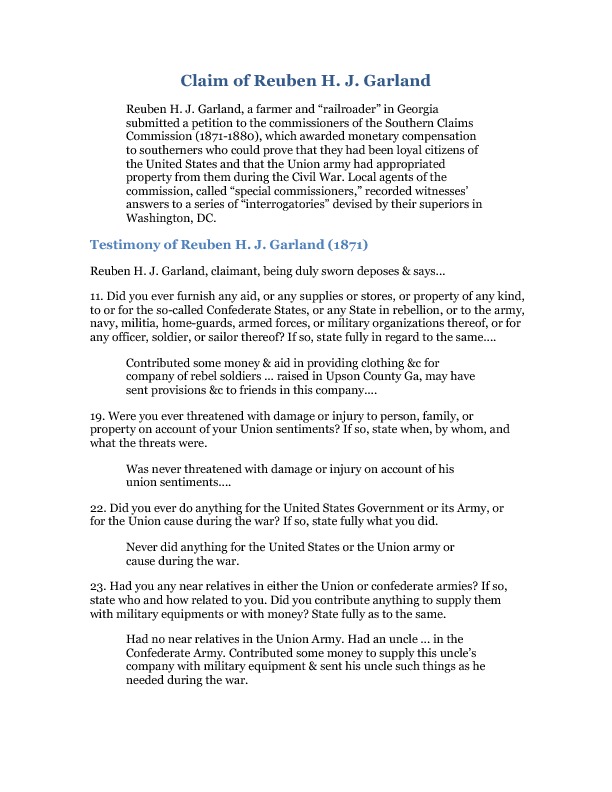Title
Claims before the Southern Claims Commission
Description
The Southern Claims Commission (1871-1880) awarded monetary compensation to southerners who could prove that they had been loyal citizens of the United States and that the Union army had appropriated property from them during the Civil War. Local agents of the commission, called “special commissioners,” recorded witnesses’ answers to a series of “interrogatories” devised by their superiors in Washington, DC. As you read, think about the evidence presented in each claim, the commissioners' logic in reaching their ruling, and how the various historical actors defined loyalty in different ways.
Date
1871-1880
Questions
- What evidence of loyalty did the claimants/witnesses present? How did the commissioners rule in the claims? What was their reasoning in arriving at these rulings?
- How did the claimants/witnesses define loyalty? Why was it hard for southerners to prove their loyalty to the Union? How did the commissioners define loyalty?
- Did the commissioners make the right decisions? How do you define loyalty?
- Why might experience with the Southern Claims Commission in the 1870s have caused some northern Republicans to view southerners’ claims to loyal citizenship with skepticism?
